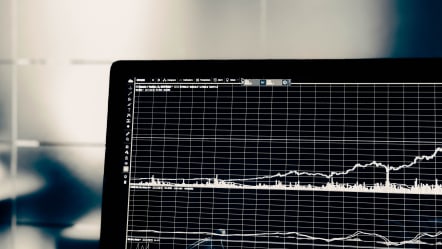Data Belongs to Everyone

To prevent pollution, it is important that users see data as a shared resource rather than a personal one.
I discovered a Blu-Ray movie sale several years ago where I could purchase three movies for a low price. Office Space was the first movie I watched out of the three. If you have not seen it, it is definitely worth a watch. If you have ever worked in an office setting - corporate or otherwise - it is practically required viewing. Hardly a day goes by without myself or my coworkers making at least one reference to Office Space. If you are familiar with the movie, then you probably understand where we are coming from.
There is a scene where Milton, who is very odd, is standing by the table where the manager's birthday cake is being cut into pieces and given to the people who work in the office. Someone gives Milton a piece of cake, and he begins to eat it, but then someone else tells him that he should pass it down the line so that everyone can have some. Milton is the last to receive a piece of cake, and he looks around at his coworkers in frustration. It's a shame what happens to Milton in that scene, but he brought it on himself by not speaking up.
We rely on data every day, and for some people, data is their main product. There are systems and processes in place to try and minimize the damage that could be done, but no system is perfect. The human brain is very good at finding ways to circumvent these safeguards and cause problems.
CHANGE THE VIEW FROM ‘MY DATA’ TO ‘OUR DATA’
It is understandable that we often view our work with a limited perspective, seeing only how it affects the smaller picture in our organizations. However, if we take a step back, we can see how it contributes to the greater whole. There is nothing wrong with people modifying resources to fit the way they work in order to meet deadlines. Later users, seeing an already altered resource, may make different modifications, sometimes undoing earlier mods.
Because data is highly susceptible to these types of alterations, we often view it as a tool that is static and only used to help us complete our work and meet deadlines. However, it is important to remember that data is a shared resource within an organization and any changes made to it can have severe downstream effects. Once you have identified potential areas for data pollution, put in place updated data validation and security measures to reduce the chances of users being able to significantly pollute the data, and the impact on the data if such an event does occur. While this may sound unorthodox, changing from a "my data" to an "our data" approach is actually aligning people's relationship to data with the way the organization really operates.
FOCUS TRAINING ON USER EMPOWERMENT
Like other changes, it will take time and effort to shift the way users approach organizational data. You cannot expect universal buy-in, and you will have a certain population of users whose responses range from reluctant to resistant to refusal. By examining this change from the end-user's perspective, we can get a better idea of how this will affect them. This change in work process may be disruptive to their daily routine and cause additional stress due to looming deadlines.
Many users require empowerment more than instruction. They might be aware of what needs to be done, but they are unwilling to do it in a different way because they don’t want to make any mistakes. Reassure them by informing them that there are data validation and security features available to help stop them from making an excessively large mess. Too much detail about how the system works is likely to overwhelm and frustrate them. Keep the focus on how they can get their tasks done, help them identify any changes they need to make in their workflows, and inform them about the guardrails in place that will help minimize downstream data pollution. For some users, it may take several sessions to build confidence. Taking the time to do this will turn them into power users. You’ll also find that these people will be strong advocates for you and your department, not just for the systems you implement and manage.
HAVE A DATA EXPERT FUNCTION
Creating these empowerment opportunities implies that there’s someone the users know to contact when they’re having issues or concerns: the data steward. The data steward also serves as the expert on how data should be structured for maximally efficient system use and is responsible for leading clean-up projects. It is not always the case that organizations have an official, designated data steward, and there may be numerous reasons for that decision. An organization can fulfill this need in many ways; the most important thing is to have a user support system and to serve the data expert role in some capacity.
The data steward streamlines the clean-up of existing data and establishes regular procedures to keep data clean for everyone across the organization. It is important to keep data clean and up-to-date in order to avoid any slowdown in productivity. If there is no data expert function in place, the whole team has to take up the mantle, causing confusion and frustration for users, and making management difficult.
By democratizing data ownership, you can do your organization a great favor. Implement and maintain a data integrity plan with the help of a designated data expert. It would be much appreciated if you could give your data experts a red Swingline stapler and allow them to listen to the radio at an agreeable volume.














